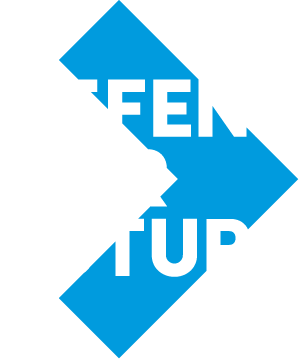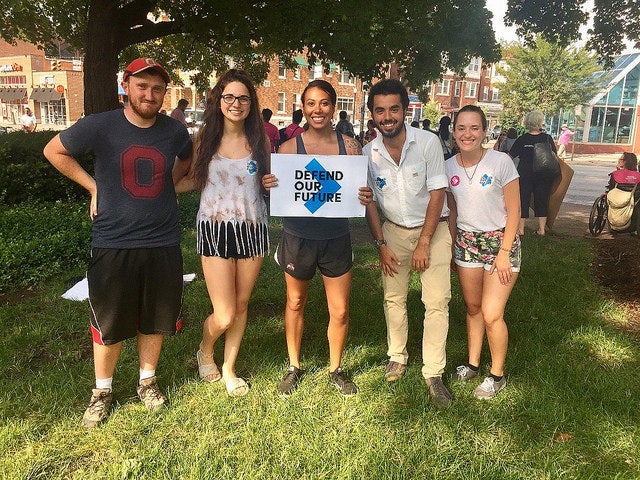
Whether it’s your first gig out of school or the next step in your career, there are important questions to ask your potential employer: What does an average day at the office look like? What’s the decision-making process for your team? What’s the office culture? Is there good work-life balance? And of course, what’s the salary range?
Here’s another one for your short list: what is the company doing to fight climate change?
Defend Our Future has just released a new resource – A Personal Guide to Corporate Climate Action – to help job seekers find out if potential employers take climate change as seriously as they do. It’s the first in a new, on-going series of resources we’re working on that will help you ascertain what a company’s climate policy is – and even help you nudge companies in the right direction when their policy doesn’t cut it.
How Can the Private Sector Be a Part Of the Solution?
There are no two ways about it: if we’re going to get to a 100% clean economy – an economy where we produce no more climate pollution than we remove – we need our elected leaders in Washington to lead the way. The most important thing we can do to defend our future is show up each and every day to hold our leaders accountable.
But we can’t win if we’re alone; we need to tackle the climate challenge on every front, and work with allies wherever we can find them. That’s part of why we made this guide: we want you to have the resources you need to advocate for the future you want. You deserve to know what your potential employer thinks about the climate crisis, and they should know that their next generation of employees cares about more than just their bottom line.
By simply asking the right questions, you have a real opportunity to help encourage companies to change their climate policies. Never forget that a company’s most important resource is its people, and they spend a lot of time, and money, trying to recruit and retain top talent. And if potential recruits demand strong climate policies, they will have to listen, or risk losing great new hires to competitors with better track records on the environment.
*What* should you ask?
It’s more straightforward than you may think to find out where your employer stands on climate change: have they made any public commitments to take action? Does the company do anything to encourage and empower employees to fight climate change (e.g., are there work incentives to take public transportation?) Check out the guide to see the full slate of sample questions!
And *When* Should You Ask?
Look, we’ve been there – interviews can be nerve-wracking challenges under the best of circumstances. It’s daunting to face a barrage of questions about who you are, what you might bring to the company, etc, without worrying about if your questions might harm your chances of getting the job. So while it’s important to keep in mind that interviews are in fact two-way streets, and many interviewers really do want to hear about what matters to you, you should absolutely use your best judgment and ask these questions only when you’re comfortable doing it.
You may find it easier to ask these questions in lower-stakes situations like at information sessions or career fairs on campus, or during an informal coffee meeting with a prospective employer. You could always ask *after* an offer has been made to you, too! The choice is yours, but you do have options.
Fight Climate Change Like It’s Your Job
We spend nearly a THIRD of our lives at work – that’s a staggering amount of time! You may have a chance to make that time count for the planet. I hope you’ll take time to take a look at this guide and figure out the questions you want to ask the next time an intriguing career opportunity comes along.




